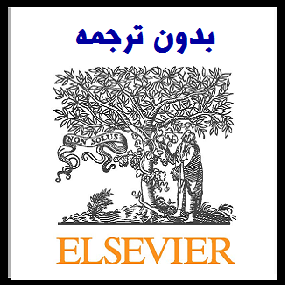دانلود رایگان مقاله ارتباط استفاده از تلفن همراه هوشمند با افسردگی، اضطراب، استرس، کیفیت خواب، اعتیاد به اینترنت – سال 2020


مشخصات مقاله:
عنوان فارسی مقاله:
ارتباط استفاده از تلفن همراه هوشمند با افسردگی، اضطراب، استرس، کیفیت خواب، اعتیاد به اینترنت. شواهد تجربی از یک برنامه تلفن همراه هوشمند
عنوان انگلیسی مقاله:
Association of smartphone use with depression, anxiety, stress, sleep quality, and internet addiction. Empirical evidence from a smartphone application
کلمات کلیدی مقاله:
استفاده از تلفن های هوشمند، افسردگی، اضطراب، فشار، کیفیت خواب، پادرمیانی، اینترنت، اعتیاد
مناسب برای رشته های دانشگاهی زیر:
روانشناسی
مناسب برای گرایش های دانشگاهی زیر:
روانشناسی عمومی
وضعیت مقاله انگلیسی و ترجمه:
مقاله انگلیسی را میتوانید به صورت رایگان با فرمت PDF با کلیک بر روی دکمه آبی، دانلود نمایید. برای ثبت سفارش ترجمه نیز روی دکلمه قرمز رنگ کلیک نمایید. سفارش ترجمه نیازمند زمان بوده و ترجمه این مقاله آماده نمیباشد و پس از اتمام ترجمه، فایل ورد تایپ شده قابل دانلود خواهد بود.
فهرست مطالب:
Abstract
Keywords
1. Introduction
2. Method
2.1. Participants
2.2. Instruments and apparatus
2.3. Procedure
2.4. Statistical analysis
3. Results
4. Discussion
CRediT authorship contribution statement
Acknowledgement
References
قسمتی از مقاله انگلیسی:
1. Introduction
Nowadays, smartphone use has become a global phenomenon. Billions of people carry smartphones to connect to other people but also to access cyberspace (Adelhardt, Markus, & Eberle, 2019). Portability and internet availability allow smartphones to be potentially even more distracting than desktop- or laptop-based internet use (Kim, Seo, & David, 2015). A growing body of evidence has shown a positive association between problematic smartphone use and psychopathology symptoms such as depression and anxiety (Demirci, Akgönül, & Akpinar, 2015; Elhai, Dvorak, Levine, & Hall, 2017; Elhai, Levine, Dvorak, & Hall, 2016; Kim et al., 2015). Little is yet known about the psychological mechanism underlying the association between smartphone use and depression, primarily because depression is a multilayered phenomenon that may be modulated bi-directionally by other psychopathological symptoms (e.g., stress, anxiety, and sleep quality), while smartphone use may be associated with technology-related addiction behaviors (e.g., Internet overuse). In line with this consideration, we designed our study aiming to address this issue and fill this gap. People experiencing depressive mood use smartphones more frequently to alleviate negative emotions, thus potentially causing further social isolation and a possible increase in smartphone overuse (Kim et al., 2015). However, this relationship is complex and appears to be bi-directional, from depression to overuse and from overuse to depression due to decreased face-to-face communication, and the interrelationship of problematic smartphone use with other forms of psychopathology.


